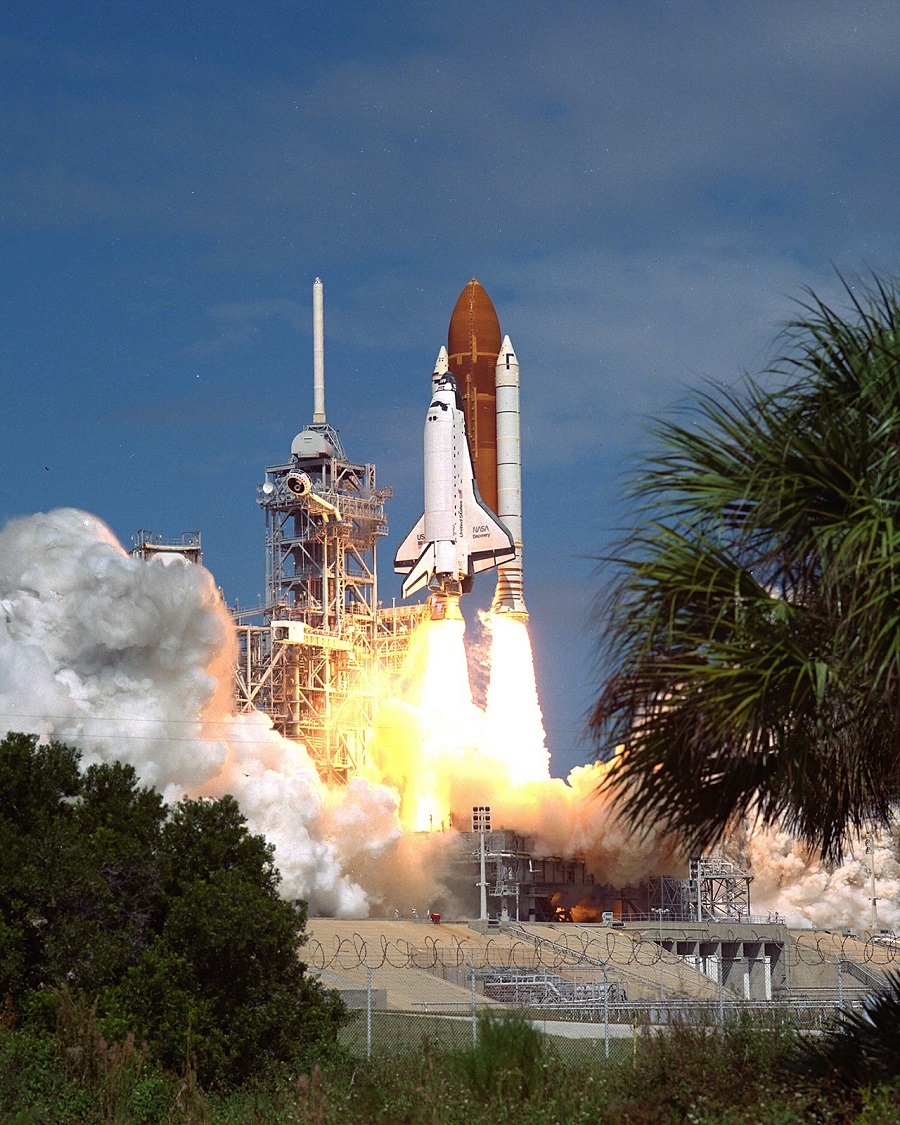
|
George P. Shultz
delivered 29 September 1988, Franklin State Dining Room, Harry S. Truman Building, Washington, D.C.
[AUTHENTICITY CERTIFIED: Text version below transcribed directly from audio] Well first of all, let's hear it for the Space Shuttle [Discovery].
By gosh, that was terrific. And together, we have come together, representatives of 12 space-faring nations,1 to commit our governments to work together over the next several decades to build, to place into orbit, and to operate and utilize a unique facility: a permanently-manned, civil space station. The space station we build together will make possible major advances in our understanding of our own world and of our universe. Researchers will use the station to test equipment and techniques for long space voyages, and to develop new materials of great benefit to mankind. 21st- century space explorers may use it as a weigh station en route to the moon or mars. This bold initiative began in January 1984 when President Reagan directed NASA to develop a space station and invited our friends and allies to join us in the endeavor.2 For the United States, Space Station Freedom -- as it will be known -- will be the centerpiece of our civil space program for the 1990s, the successor to Gemini, Apollo, and the Space Shuttle. It is an essential next step if the United States is to stay on the cutting edge of space exploration and research. For our partners -- Europe, Japan, and Canada -- this cooperative project has equal significance since it represents a commitment to making manned activity a major facet of their own impressive space programs. Yet, the significance of the agreements we have just signed extends well beyond the immediate objective of space station cooperation. This project also will be a shining symbol of the commitment of those who place a high value on political and economic freedom to cooperate for mutual benefit. It is not for nothing that we, the world's foremost democracies, have chosen to call our project "Space Station Freedom" -- for the democratic ideals we share will carry us boldly into the future, even as they carried generations before us from the Age of Reason through the Industrial Era and into the Space Age. In the decades ahead, we know that the democratic values of individual initiative, human ingenuity, and intellectual freedom so critical to scientific progress will be ever more essential to national success. There is no doubt in my mind that if Benjamin Franklin, the statesman and scientist for whom this room is named -- there's Ben right down there [gesturing up and off to his left] -- had lived to see this day, he would have been an enthusiastic supporter of our joint enterprise. Like those of you who have worked so hard to bring this project along, Benjamin Franklin was a man of vision who combined his appreciation of the practical with a keen sense of adventure. So, ladies and gentlemen, I would like to convey to all members of the American, European, Japanese, and Canadian negotiating teams my deep appreciation. You have produced a set of agreements that provides a solid foundation for long-term cooperation. It is now time to pass the torch to the engineers and program managers. We wish you well. As you go forward to perform technological feats that are certain to amaze and inspire us all, I urge you to keep close to your hearts the spirit of genuine partnership that is so evident in this room today. Thank you.
1 Member nations included the United States of America, 9 Member States of the European Space Agency (Belgium, Denmark, England, France, Italy, West Germany, the Netherlands, Norway, and Spain), Japan, and Canada. 2 Excerpt from Reagan's 1984 State of the Union Address: "America has always been greatest when we dared to be great. We can reach for greatness again. We can follow our dreams to distant stars, living and working in space for peaceful, economic, and scientific gain. Tonight, I am directing NASA to develop a permanently manned space station and to do it within a decade...We want our friends to help us meet these challenges and share in their benefits. NASA will invite other countries to participate so we can strengthen peace, build prosperity, and expand freedom for all who share our goals." Original Audio and Video Source: NASA.gov Image and Description Source: Wikimedia.org
Video Note: AI upscaled and frame
interpolated
Audio Note: AR-XE = American Rhetoric Extreme Enhancement
Page Updated: 1/16/24
U.S. Copyright Status:
|
|
|
© Copyright 2001-Present. |

